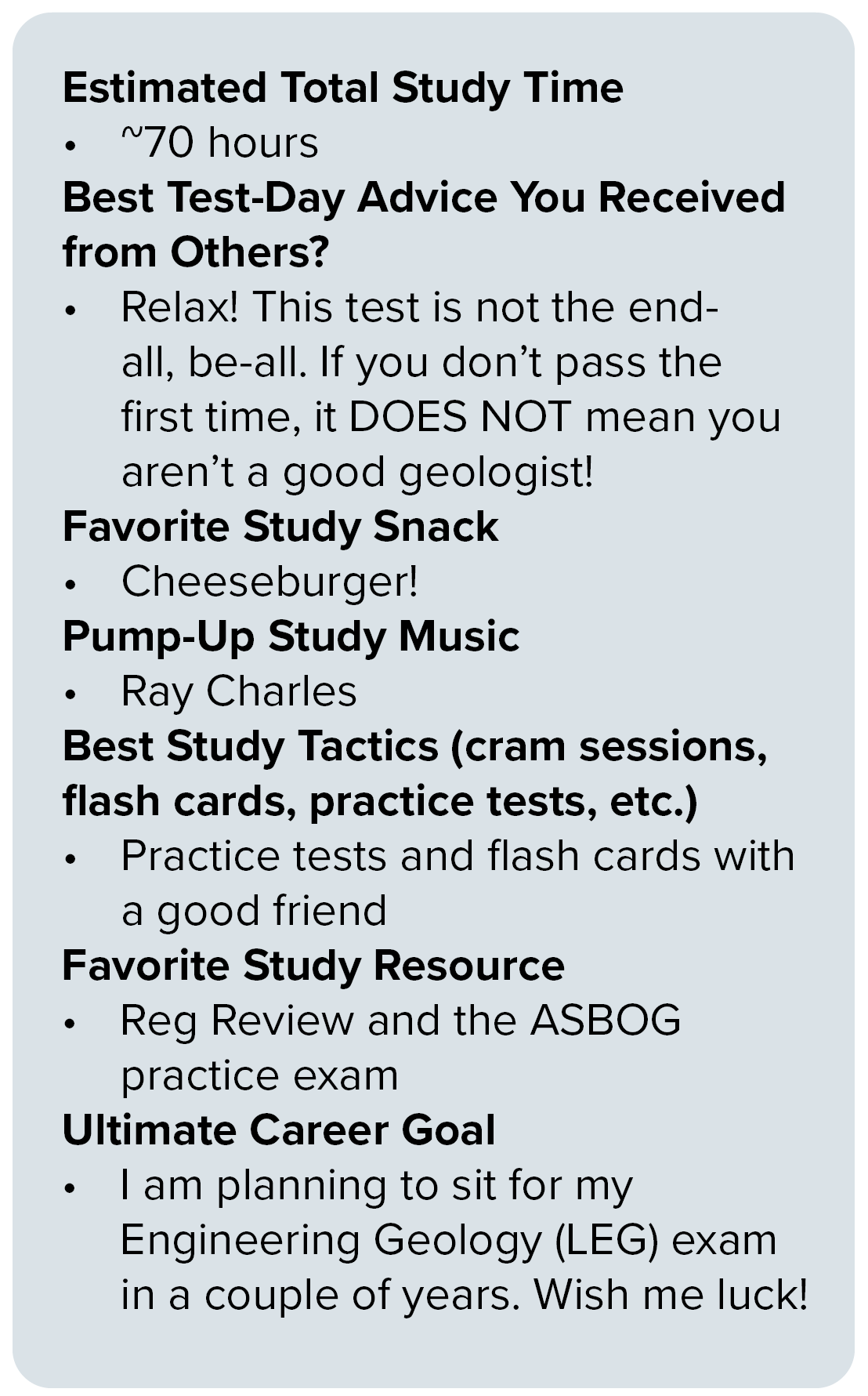In the science and engineering industry, seeing a “PE”, “LG”, “PMP”, or other initials behind someone’s name shows that person went through years of work experience that culminated in a substantial test to confirm the right to practice their area of technical expertise. Many go through this licensing journey but few outside that group know what the process is really like.
We’re telling those stories here. Aspect’s professionals are writing a series of articles that capture the trials and successes of studying for and receiving these career-defining milestones.
Chelsea Bush, Licensed Geologist (LG)
Date you took the test: March 17, 2023
Date Awarded: May 4, 2023
Chelsea working at Rialto Beach.
Where did you start with your test prep?
I find that studying with a good friend is the best way to learn and retain information. I chose my bestie Mary Alice, who was taking the test at the same time, and we met up at a restaurant/bar every weekend for 3 months. Good food and a beer helped us relax and enjoy our study time, instead of dreading it.
Together, we went over the practice tests and graded each other, and we taught each other all of the different sections outlined in the Reg Review study materials. We decided that we should prepare our “lessons” on the material we are least familiar with, then go over our findings together.
What should a person gearing up to do this know about the mental, physical, and social challenges of test prep?
Studying for the test is stressful—at first it is very overwhelming and it seems like you will never get through all the study materials. But if you break down the sections and consider your comfort level with each subject, it helps put the test in perspective.
I focused heavily on hydrogeology and engineering geology review, and spent a day on each of the subjects (like economic geology, which I have no background in) reading through all of the material and attempting study questions. I suggest learning basic hydro equations, how to calculate weighted averages, and review your three-point problems (applicable to both structural and hydro questions). Don’t freak out if you don’t know some things! You only need a 70 percent grade to pass.
Chelsea with her cat, Elvira.
Walk us through the Big Test Day…
I was really nervous! To prepare for the exam I ate a solid breakfast, drank a lot of water, and took a few deep breaths.
When I got to the testing center in Mountlake Terrace, I ran into Bodie McCosby from Aspect and recognized a few other people, which made me feel less stressed out.
It is important to follow the instructions given by ASBOG (the National Association of State Boards of Geology) and make sure you have all required documentation and identification before entering the testing center. It is a little odd, but they use a metal detector and pat you down before you enter the testing area to ensure you aren’t cheating, so be prepared to feel like you are going to board an airplane.
How did you feel when you got the results?
Because this was the first year that the test was given online, we had a lot of questions about how the results would come out, and when. I know all of us were obsessively checking our emails. It took about 45 days to receive our test results, a slightly longer wait than previous years with the written test. When I got the email that I passed, I was at home after work—I was really excited and relieved! The first thing I did was call my mom and dad to share the news, and that evening my husband took me out to dinner to celebrate.
What lessons did you learn that you’d want others to know?
I think the best thing to do is study in a way that helps you—not everyone studies well with a friend and a cheeseburger like me. I reflected on the best methods I used during grad school, and relied on those. Reaching out to others who have taken the test and experienced it is also very helpful for understanding the level of effort you should take.


